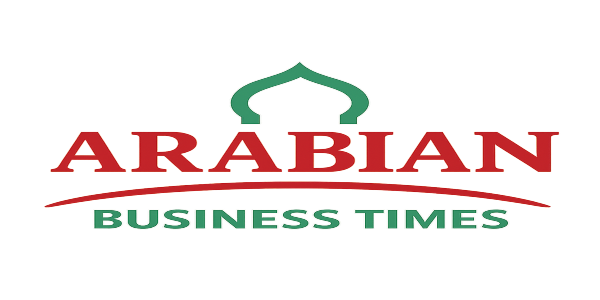Arabic, one of the world’s most widely spoken languages, is deeply rooted in UAE culture and identity. As the nation accelerates toward a tech-driven future, Arabic language education is undergoing a remarkable transformation. From AI-powered platforms and advanced language models to mobile learning apps and MOOCs, the UAE is investing heavily in digital solutions to make Arabic learning accessible, engaging, and globally relevant. This blog explores the latest innovations, emerging trends, and future opportunities shaping Arabic language learning platforms in the region.
Why the UAE Is Leading Arabic Language EdTech
The UAE is positioning itself as a global hub for Arabic language innovation through strategic government initiatives, research investments, and partnerships with EdTech companies. Programs like the Mohammed bin Rashid Arabic Language Award celebrate advancements in Arabic content and teaching, while new regulations in Abu Dhabi require nursery and kindergarten students to receive dedicated Arabic lessons weekly. Dubai and Abu Dhabi schools are also integrating AI-powered tools and digital resources, ensuring both native and non-native speakers have access to high-quality, personalized learning experiences. These initiatives reflect the UAE’s commitment to preserving Arabic heritage while preparing learners for a digital future.
AI-Powered Language Models
Artificial intelligence is playing a transformative role in Arabic language education. The UAE has developed advanced AI models like Falcon Arabic and Jais, trained on massive Arabic datasets, to create culturally relevant and dialect-aware learning tools. These models power personalized learning platforms, enabling students to practice pronunciation, grammar, and vocabulary with real-time feedback. Falcon Arabic is designed to preserve linguistic nuances, while Jais focuses on conversational AI for regional dialects, making Arabic learning more engaging and effective for both native and non-native speakers. By integrating these AI models into EdTech platforms, the UAE is setting a new standard for localized, intelligent education solutions.
Digital Arabic Resources & Corpora
The UAE is building one of the world’s largest repositories of Arabic linguistic resources to power AI and EdTech solutions. Projects like the BAREC readability corpus and digital Arabic dictionaries are designed to make language tools smarter and more accessible. These resources enable adaptive learning platforms to analyze a student’s reading level, offer content tailored to their abilities, and improve natural language processing (NLP) for Arabic. By creating robust datasets and corpora, the UAE is ensuring that its Arabic EdTech innovations are not only scalable but also deeply rooted in linguistic accuracy and cultural authenticity.
EdTech Platforms & Apps for Learners
Mobile-first platforms are redefining how learners study Arabic. Apps like Arabits, which has over 1.8 million downloads, provide gamified lessons, interactive quizzes, and progress tracking at an affordable cost. International platforms such as Duolingo and Babbel are also widely used in the UAE, offering supplemental resources for non-native speakers. The growing adoption of Arabic-focused apps demonstrates the country’s push toward accessible, flexible, and tech-driven education. These tools are especially popular among expatriates, helping bridge communication gaps and promote cultural understanding.
AI-Enhanced Learning Tools
AI-powered features such as pronunciation feedback, grammar correction, and vocabulary recommendations are rapidly improving Arabic language learning. Tools like QVoice use AI to analyze a learner’s speech and provide detailed feedback on intonation and accuracy, while other platforms integrate image-based quizzes and gamification to make lessons more engaging. These technologies enable learners to practice independently and receive real-time guidance, reducing reliance on traditional classroom models and empowering students to take control of their learning journey.
MOOCs & Interactive Platforms
Massive Open Online Courses (MOOCs) are helping Arabic language learners access high-quality lessons from global educators. Platforms like Coursera, EdX, and FutureLearn offer Arabic language modules that cater to beginners and advanced learners alike. UAE-based initiatives are also integrating interactive video lessons, discussion boards, and cultural context modules to create a holistic learning experience. These platforms cater to a growing demand for flexible education, especially for expatriates, professionals, and students seeking personalized and on-demand learning opportunities.
Local EdTech Innovation & Community Insights
The UAE’s EdTech sector is playing a vital role in shaping Arabic language learning. Local startups and organizations are designing platforms that align with the region’s cultural values and education policies. Initiatives like the UAE National Program for Arabic Language are investing in innovative technology-driven approaches to boost Arabic proficiency. Community-led programs and workshops are also leveraging tech to connect learners, offering interactive speaking clubs and collaborative digital spaces, helping foster a stronger connection with the language and its cultural heritage.
Future Trends & Opportunities
Arabic language learning in the UAE is moving toward immersive, AI-driven experiences. Virtual reality, voice recognition, and gamification are expected to dominate future platforms, making Arabic learning engaging and interactive. Government-backed initiatives like the National Strategy for the Arabic Language will continue driving innovation, while EdTech companies focus on catering to diverse learners, including expatriates and global Arabic enthusiasts. These trends are set to position the UAE as a global leader in Arabic education technology.
Conclusion
The UAE is at the forefront of transforming Arabic language learning through advanced technology, AI-powered platforms, and culturally rich educational content. With a strong focus on inclusivity and innovation, the country is not only preserving the Arabic language but also making it more accessible to a global audience. As new technologies emerge, learners in the UAE and beyond will benefit from more personalized, immersive, and culturally relevant Arabic learning experiences.

